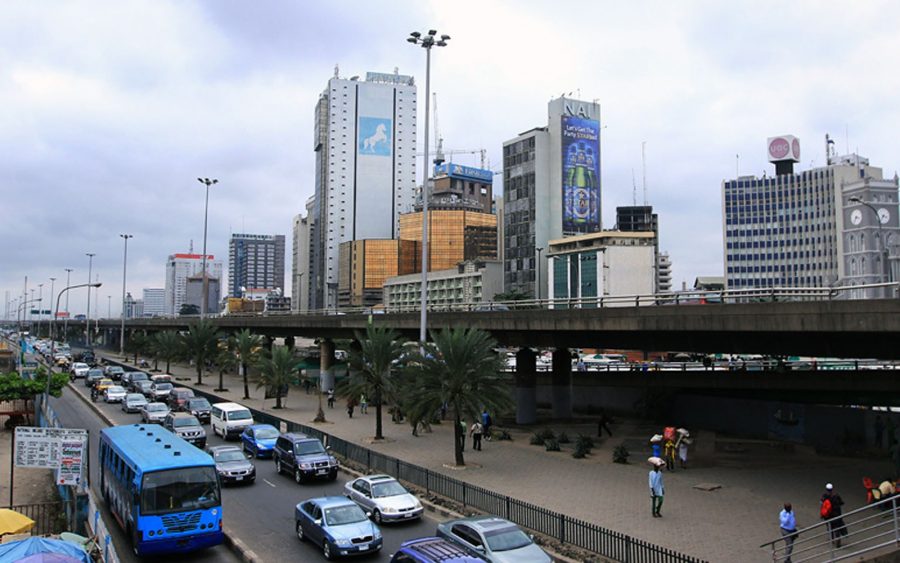Nigeria’s Gross Domestic Product (GDP) in real terms declined by 6.10% (year-on-year) in Q2 2020, thereby ending the 3-year trend of low but positive real growth rates recorded since the 2016/17 recession.
This is according to the second quarter (Q2) GDP report, released by the National Bureau of Statistics (NBS) on Monday.
According to the numbers contained in the GDP report, the performance recorded in Q2 2020 represents a drop of 8.22% points when compared to Q2 2019 (2.12%), and 7.97% points decline when compared to Q1 2020 (1.87%). Apparently, the significant drop reflects the negative impacts of the disruption caused by COVID-19 pandemic and crash in oil price on the Nigerian economy.
READ: No trophy for International Breweries after bland Q2 results
Nigeria’s Oil sector nosedives
The latest GDP number shows that Nigeria’s biggest revenue earner, oil sector, recorded 6.63% (year-on-year) contraction in Q2 2020, indicating a decrease of –13.80% points relative to the rate recorded in the corresponding quarter of 2019.
- Quarter-on-Quarter, the oil sector recorded a growth rate of –10.82% in Q2 2020.
- The Oil sector contributed a meagre 8.93% to total real GDP in Q2 2020, down from figures recorded in the corresponding period of 2019 (8.98%) and the preceding quarter (9.50%)
- In the second quarter of 2020, an average daily oil production of 1.81 million barrels per day (mbpd) was recorded. This was -0.21mbpd lower than the daily average production of 2.02mbpd recorded in the same quarter of 2019, and –0.26mbpd lower than the first quarter 2020 production volume of 2.07mbpd
READ: Nigeria to lure foreign investors with attractive tax incentives
Non-Oil Sector shrinks, as accommodation, construction, others contract
The non-oil sector declined by –6.05% in real terms during the reference quarter (Q2 2020). It was the first decline in real non-oil GDP growth rate since Q3 2017.
- According to the report, non-oil sector grew at –7.70% points lower compared to the rate recorded during the same quarter of 2019, and –7.60% points compared to the first quarter of 2020.
- Sectors which recorded the highest negative growth in Q2 2020 include Transport and Storage, Accommodation and Food Services, Construction, Education, Real estate and Trade among others.
- In real terms, the Non-Oil sector accounted for 91.07% of aggregate GDP in the second quarter of 2020, slightly higher than the share recorded in the second quarter of 2019 (91.02%) as well as the first quarter of 2020 (90.50%).
- Nevertheless, growth in non-oil sector output was driven by Financial and Insurance (Financial Institutions), Information and Communication (Telecommunications), Agriculture (Crop Production), and Public Administration, moderating the economy-wide decline.
READ: FG fails to meet revenue projection for 2019, as revenue hits decline mode
The Bottom line: Nigeria’s economy may enter worst recession in 4-decade
GDP is Nigeria’s biggest economic data and it measures the monetary value of everything produced in the country. It depicts the nation’s total economic activity. A decline in GDP means major economic activities are slow or sluggish, which may be a result of several factors.
The latest GDP number somewhat surpassed both the IMF and World bank forecast for year 2020, which implies the nation’s economy may witness yet the biggest contraction in four decade. The International Monetary Fund (IMF) disclosed in its June outlook that the Nigerian economy would witness a deeper contraction of 5.4% as against the 3.4% it projected in April 2020.
According to the NBS, the 6.10% decline in GDP was largely attributable to significantly lower levels of both domestic and international economic activity during the quarter, which resulted from nationwide shutdown efforts aimed at containing the COVID-19 pandemic.
The recent labour statistics report released showed that unemployment rate in Nigeria rose to 27.1% at the end of Q2 2020, as the impact Covid-19 pandemic is significantly being felt across critical sectors. While Nigeria has embarked on gradual easing of lockdown since Q2 2020 with a N2.3 trillion stimulus intervention, economic activities are yet fully peak, indicating a muted outlook in the remaining quarters of the year
Download the Nairametrics News App
